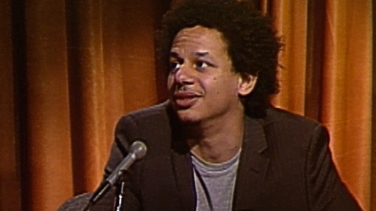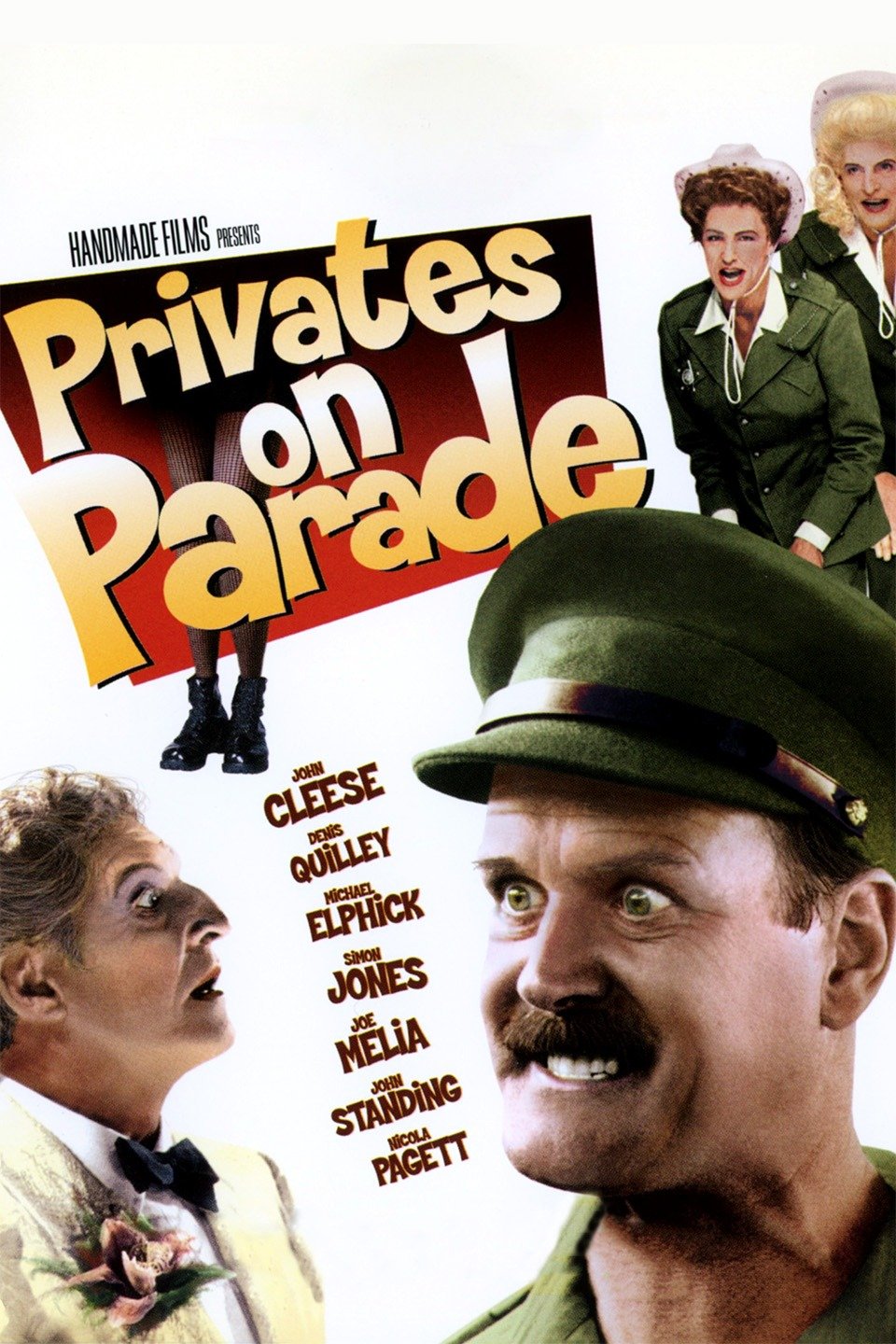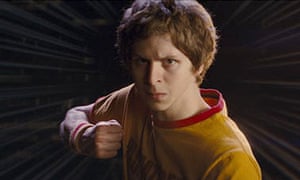 |
Keith Raniere, Cult Leader of "Nxivm"
|
Yes, we're vulnerable. Reporter Barry Meier said the Nxivm story stuck out because it showed how people are always vulnerable. I think the extent to which we end up in situations like Nxivm or Jonestown speaks to our existential fuckedness. It's a family matter, I think.
In "Honey Boy"(2019), Shia Le Bouf plays an abusive father figure raising a child actor, the story being Shia's childhood biography. Remarkable in the film, I think is a discussion of where the power lies in a father/child relationship, as the child actor wields a "per diem" (an envelope stuffed with cash the kid earned, which the dad wants for strip clubs) and technically employs the abusive father, a technicality which becomes more significant as the child ages.
"Love and Mercy" (2014) had a similar treatment: a therapist harangues and abuses a multi-millionaire depressive artist, who has slid into the therapist's legal clutches. These kinds of situations are not unknown for rich people.
There is a kind of diffusive, tentative chaos among the rich, if HBO's Succession is as real as it feels. A young distant cousin of a powerful mogul manages to step into the mogul's family, half by accident, and half by dumb resilience.
Consider what it feels like to move from one conception of power into another. We are always able to wield the valued props of our power's position. These props, wielded by Keith Raniere for example, don't amount to much. A childhood of awards. Some real skill, like martial arts, or volleyball. A degree and years of education.
Yes, they make you into better people: successes. Keith Raniere I think has many successes. But these achievements are fundamentally empty to the extent that they do not guarantee much about the people or the situations these empowered people are in and draw people into.
Jonestown's communist bona-fides* are another example: not enough to guarantee much. The lives we lead are the proof of their roots; changing the way people live was Keith Raniere's oestensible goal.
Which is absurd, and what is sad, is the over promise // under-delivering of these cults. Overpromise on bona-fides, under-deliver on results. At least, long-term results. Obscure the meaning. I'm reading 120 Days of Sodom; there's no expression of rich people, dominance, and wealth which is truly significant. Which is why Keith's branding scheme was, in essence, pointless. (ed: he coerced women to ritually brand each other with his initials)
*
There's no expression of rich people, dominance, and wealth which is truly significant. What it amounts to is a coercion of sexual sensation by any means necessary. Inflating their sexual needs in such a way, through exhaustion, eventually deprives 120 Day's "libertines" of the usual libraries of sensation and thus they choose to employ more and more depraved methods to stimulate themselves.
The libertine's pleasure is very close to nothing at all-- the lives of at least 30 people are suborned just for the joys of about four people in 120 Days of Sodom. It is possible to see the book as a story of a massive amount of waste. Of course this perspective equivalizes human life with garbage; tho this is the perspective of the book's libertines. They view the lives of others as a tremendous barge of garbage which they the privileged may pluck from at will, like seagulls.
The Marquis De Sade's philosophies on life, be that as they are for a version of sexual liberation which concludes the lives of women are pointless but for total subjection, are never convincing to me. I feel that they are arguments the times give context to: conditions are repressed, better to open up then to play slave to god and husband. Ofc the destiny of the women who "open up" is quite bad.
This brings me back to Keith Raniere. He I think offers propositions similar to Sade: an alternative life to the mainstream-- a life of scientific building blocks for taking control of ourselves and the world. Let me provide some context.
Indie Game Designer Porpentine reviewed the NBC series Hannibal:
I think a lot about fellow indie game designer Stephen Murphey's essay on Robert Walser, and this quote in particular: (which Porpentine quotes in her standout essay Hot Allostatic Load):
"The dream of an imaginary community that allows total identification with one's role within it to an extent that rules out interiority or doubt, the fixity and clearness of an external image or cliche as opposed to ephemera of lived experience, a life as it looks from the outside." - text sourced here
The dream of human existence is to live a life which is external with no internal living, no warm meatbag slip-and-creak of nerves, guts, digestive systems, psychological troubles, etc. etc. I think, in a way, the mafia sells this identity to its members; "our way", Cosa Nostra, Omerta, an alternative system of control. These of course designed to isolate people and turn them into bodies/soldiers/corpses.
There is no PURPOSE beyond concentration for those who wish to establish something like what Raniere or Jim Jones had, or what Sade imagined, or what Porpentine saw in the story of NBC's Hannibal. I think, in some ways, there is no purpose to FAMILY beside concentration. As concentration is the bringing of people closer together.
Intimacy *is* the goal of the "libertine". "I wanna be married and have 100 kids so I can have 100 friends. And no one can say no to being my friend." A quote from Michael Scott** of NBC's "The Office". I see the same sort of impulse in Sade's libertines, who with total impunity curate an entire society.
This! Is the point of Raniere's brandings: the (attempted) creation of a society/social truth/identity. I see a similar impulse in the serial killings as depicted in Mindhunter's Ed Kemper:
"You know, women were initially indifferent to me. They weren't interested in sharing. My whole life, no one wanted to interact with me. Not even our cats, when I was a kid. The only way I could have those girls was to kill them, and it worked. They became my spirit wives. They're still with me."
 |
Ed Kemper, as depicted by Cameron Britton in Mindhunter
|
A ritual designed to inflict a social truth (the absence of the victim in our society) and a personal pleasure (the memory of a victimization).
I've been studying true crime as an interest for about a year, and I'll admit today that I am fascinated in social situations organized by selfish people. Like Keith Raniere's brandings or Ed Kemper's killings, the point is to create a social reality (scarred or dead victims) as a means to supplement personal experiences (the memories of the murders/ a support network of subordinates).
This was, ultimately, what Jonestown became about. People in charge manipulate societies purely for personal experience.
I think we all have, to some extent, some desire and ability to appeal to society. I think we all have the desire to live an external life, a vicarous imagining of our experience which would supposedly comfort our internal routine suffering. This externality includes opportunity. A person who is famous is widely thought to be so comforted-- an assured external persona, filled with opportunity, is thought to comfort our internal life. An imagined ideal life that includes prospects and opportunities.
Dealing with the future: proposing a revolutionary change in the future: changing your self through practice to create a future, better self. The future stretches out endless and fairly unknowable. Contrast that with the past, which we pretend to know.
I think, in that imagination of our past, our identities rest.
*Angela Davis was fooled too-- we are all vulnerable, I think!
**These words spoken by the character Michael when he was a child, filmed in an interview with a puppet on a fictional children's tv program, "Fundle Bundle". Episode 18, Season 2.


















